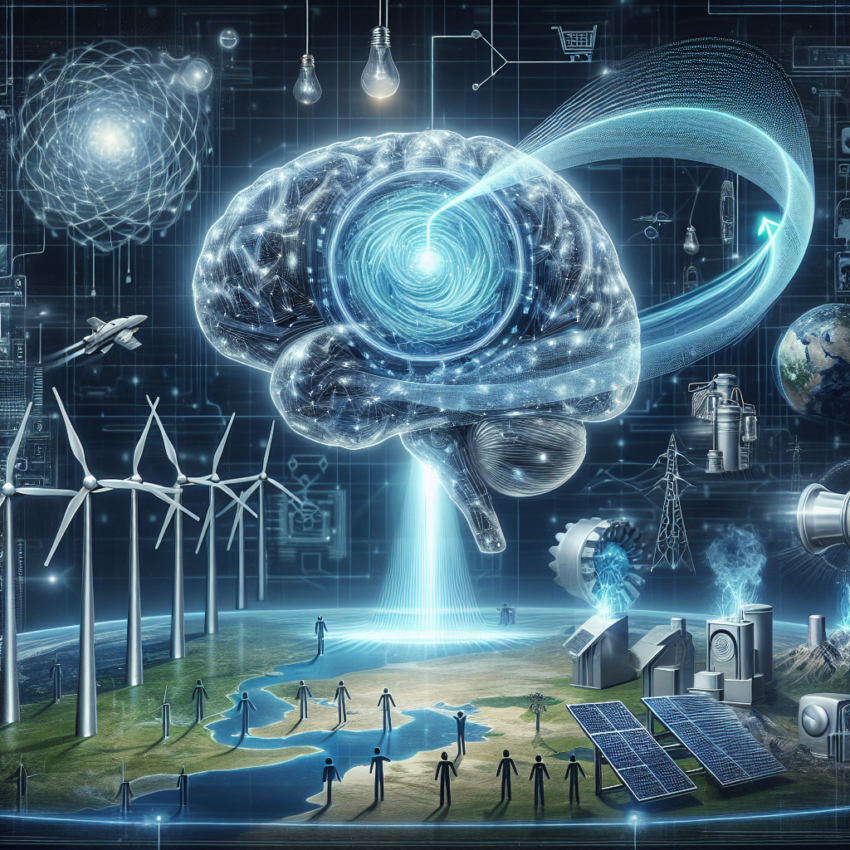Introduction
The advent of Artificial Intelligence (AI) has revolutionized numerous industries, and energy management is no exception. This article explores how AI is improving energy management by enhancing efficiency, optimizing resource allocation, and offering predictive insights.
Enhanced Energy Efficiency
One of the most significant benefits of AI in energy management is the improvement in energy efficiency. AI algorithms can analyze vast amounts of data to identify patterns and trends that human analysts might overlook. Here are some key ways AI contributes to energy efficiency:
- Smart Grids: AI integrates with smart grid technology by optimizing the distribution of energy, minimizing waste, and adjusting supply according to real-time demand.
- Demand Response: AI systems can predict peak demand periods and automatically adjust energy consumption without human intervention, enhancing overall efficiency.
- Building Management Systems: AI-powered systems automate heating, ventilation, and air conditioning (HVAC) based on occupancy patterns, leading to significant energy savings.
Predictive Maintenance
Maintenance of energy systems has traditionally relied on routine checks and scheduled maintenance. AI, however, uses predictive analytics to foresee failures before they occur, thereby reducing downtime and repair costs. The benefits include:
- Data-Driven Insights: AI analyzes historical data to predict equipment failures, helping energy managers prioritize maintenance on critical components.
- Minimized Operational Costs: By addressing issues before they escalate, organizations can significantly reduce operational costs associated with energy production and distribution.
Smarter Resource Allocation
AI improves the allocation of energy resources through intelligent data management and analysis. This capability allows for:
- Optimized Resource Distribution: AI can help utilities determine the most efficient ways to distribute energy across various sectors based on real-time consumption data.
- Integration of Renewable Energy: AI systems can effectively manage and integrate renewable energy sources, such as wind and solar, into existing grids by predicting energy production based on weather data.
Case Studies
Various companies worldwide have begun implementing AI-driven solutions in their energy management practices:
- Google: Google uses AI to enhance energy efficiency in its data centers, achieving a 30% reduction in energy usage for cooling.
- Duke Energy: This company employs AI to monitor grid health and predict failures, leading to enhanced reliability and service delivery.
Challenges and Considerations
Despite its benefits, integrating AI into energy management presents challenges:
- Data Privacy: Protecting sensitive energy consumption data is critical.
- Implementation Costs: Initial costs for AI technology can be high, which may deter smaller organizations from adopting these solutions.
Conclusion
AI is undeniably transforming energy management, providing enhanced efficiency, predictive maintenance, and smarter resource allocation. As technology continues to evolve, organizations that leverage AI can expect not only cost savings but also a significant contribution to sustainability efforts worldwide.

